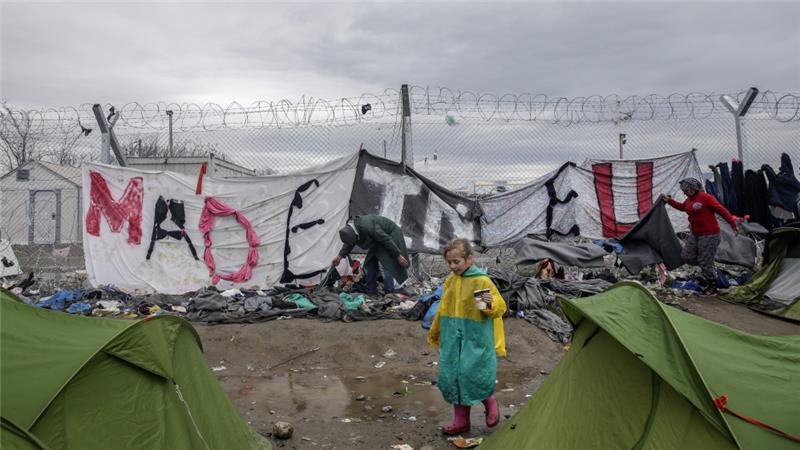Climate justice is a relatively new term. Being a key concept in the Degrowth in Action – Climate Justice Summer School 2015, it is important here to expand upon the different understandings of, and some of the debates surrounding, the term ‘climate justice’ – though of course no single understanding is right or wrong, and no group can lay claim to a particular concept.
Although it has a much longer history that is difficult to trace, the term was popularised by the formation of the ‘Climate Justice Now!’ network in Bali during the COP-14 UN Climate negotiations in 2007. In the build up to the COP-15 in Copenhagen the term became a mobilizing platform across Europe as the ‘Climate Justice Action’ (CJA) network opposed the COP as an unjust set of negotiations interested in expanding capitalism rather than in addressing the global climate crises.
For many of the groups and networks that participated in CJA the broad position underlying the use of the term is the politicisation of climate change – understanding that it results from our current and historical social relations, and that in order to address it we need fundamental changes to our economic and political systems. The ‘injustice’ is that the industrialised western world are disproportionately (both historically and currently) responsible for the emissions that are causing climate change, and are now using it as an excuse to accumulate further through the implementation of market-based false solutions. Meanwhile, the geographical and political south will suffer the worst effects of climate change; their territories and resources were plundered and polluted to feed western industrialisation, and now climate change is being used as an excuse to colonise, privatise and dispossess further through the creation of new markets to ‘solve’ the crisis.
Under the broad banner of climate justice, different groups and networks employ a wide range of tactics – from lobbying and campaigning through to sabotage and direct actions, and everything in between. Many of the struggles are not primarily or explicitly ‘climate’ struggles but in fact local struggles against dispossession, exploitation, contamination or industrial expansion in local areas: including those against monoculture plantations in Uganda, hydroelectric dams in Brazil, large-scale wind farms in India, open-cast coal mining in Wales, and exploitation of tar sands in Canada. Others are fighting to prevent the new markets and agreements that will encourage and facilitate more exploitation, accumulation and dispossession – such as opposing and challenging the carbon market, the privatisation of forests or the domination of powerful countries and corporations within international negotiations. The different uses of the term are often (but not always) reflected in the political tactics employed, so for example one understanding of justice may pursue a legal route whereas others reject this and use direct action.
One of the debates around the term is over the extent to which capitalism is identified as the underlying cause of the problem. This debate is exacerbated by conflicting understandings of capitalism itself. How many people have actually considered the values of the economies we live in, what it is that makes them ‘capitalist’, and what alternatives exist or might look like? There are those, often of a liberal Keynesian persuasion, who have no problem with capitalism per se, only with the neoliberal version of it. They tend to argue that neoliberal policies encourage the worst excesses of capitalism, and that what is preferable is the careful management of capitalism towards the interests of the people. For others, there may be a strategical decision to say ‘neoliberalism’ over ‘capitalism’ because the former, having clearly definable policies, offers a more tangible enemy than abstract social relations. Nonetheless they understand the problem to be capitalism itself, not the way we choose to ‘manage’ it. Finally, there are those who identify not just a particularly ‘pure’ form of capitalism as the problem, but capitalist relations themselves – relations based on domination and exploitation in the pursuit of profit. Capitalism, whether mediated by state regulations or otherwise, values profit above all other things.
Another point of contention between different groups are disagreements around discourses of ‘climate debt’. These can sometimes come down to an understanding of the word. Understood in a financial sense, climate debt would necessitate the existence of international financial systems within which the debt could be repaid. In a radical climate discourse, there can be no space for such systems.
Understood in a broader sense, climate debt is an attempt to balance severe disequilibrium in emissions produced by the industrialised countries and the consequences experienced by the global south. Reparations in this latter sense are demanded in terms of removal of patents on technologies, so that they are available and free for all. The argument is that climate debt is a political issue, and cannot be reduced to a simple financial transaction that attempts to place a monetary value on the damages done and lives lost as a result of centuries of exploitation. The concept also serves to turn the tables on industrialised nations, to remind people of who has driven the processes of industrialisation – why it is that we’re in this mess and how it is that we got here. Given that the demands for reparations are highly unrealistic, the term can often be understood as a tool – like ‘climate justice,’ it encapsulates many complex issues in one compact phrase.
Similarly, discourses around ‘rights’ and ‘justice’ are rejected by many who approach the issue from an anti-authoritarian perspective because they necessitate some authority (in the abstract sense) that has the ability to define what those ‘rights’ are and what is ‘just’. Practically, rights and justice are usually articulated through the legal structures designed by and in service of the state, therefore legitimising and reinforcing oppressive and repressive power structures whose primary function is to protect the property rights necessary for capitalism to flourish. Where such legal structures do not yet exist (as, for example, in many indigenous communities), their establishment serves to force incorporation into the established hegemonic system of commodification and exchange.
However, others consider that the use of courts and binding regulations in the form of ‘laws’ and ‘rights’ can be instrumental for holding corporations accountable for their innumerable local crimes. In parts of what developed into the ‘Environmental Justice’ movement, frontline communities of colour in the US used the existing legal structures and the language of rights to successfully resist structural environmental racism and industrial dumping in their neighbourhoods.
Altogether outside of this spectrum lie organizations and coalitions such as TckTckTck, who have begun to co-opt the term. TckTckTck’s ’join the fight for climate justice’ campaign offers no definition of climate justice, but plenty of guilt-and-pity evoking prose and photos bemoaning the disastrous consequences of climate change without ever alluding to the possible, political, causes. The campaign calls on politicians to agree to ‘fair, ambitious and binding emissions cuts’ – reinforcing a concept of justice and a method of attaining it that encourages faith in the systems and power relations responsible for the situation in the first place. Given that the Climate Justice Now! network was formed partly as a response from the smaller or more radical NGOs to the un-acceptable pro-carbon market, pro-techno-fix positions of the bigger NGOs in the Climate Action Network, the appropriation of this term is yet another attempt to recuperate a radical concept.
It is obvious that the term ‘climate justice’ as yet lacks a single clear definition and is used by different groups in different ways. However, most share a common basic analysis of the historical responsibility, distribution of consequences and rejection of market solutions that make climate change a political, rather than a technical issue. _______________
This text was first published in the booklet "Space for Movement? Reflections from Bolivia on climate justice, social movements and the state", edited by Building Bridges collective.
Degrowth has been described as a “movement” rather than an ideology1, and as such it presents several variations. For some of its proponents, degrowth is a proxy for sustainable consumption, and to a lesser extent production2. A second group of degrowth advocates are those for whom an emerging discussion of “sufficiency” as a societal norm is taking shape, as a result of activism3. Finally, a t...

Von Anne Pinnow, Steffen Lange, Matthias Schmelzer und Nina Treu Vom 30. August bis 3. September hat die 5. Internationale Degrowth-Konferenz für soziale Gerechtigkeit und ökologische Nachhaltigkeit in Budapest stattgefunden. Das Konzeptwerk Neue Ökonomie war mit mehreren Mitarbeiter_innen vor Ort. In diesem Artikel möchten wir einige unserer Eindrücke schildern und eine Einschätzung unsererse...

Endlich habe die EU wieder Stärke und Einigkeit gezeigt, endlich sei sie wieder in der Lage, ihre Außengrenzen zu sichern, so die offiziellen Verlautbarungen nach dem Deal mit dem türkischen Präsidenten Erdogan im März. Doch die „Schließung der Balkanroute“ und der Pakt mit der Türkei sind tatsächlich eine Schande für Europa. Es ist ein Triumph der Zyniker, ein Kniefall vor den Rassisten in der...